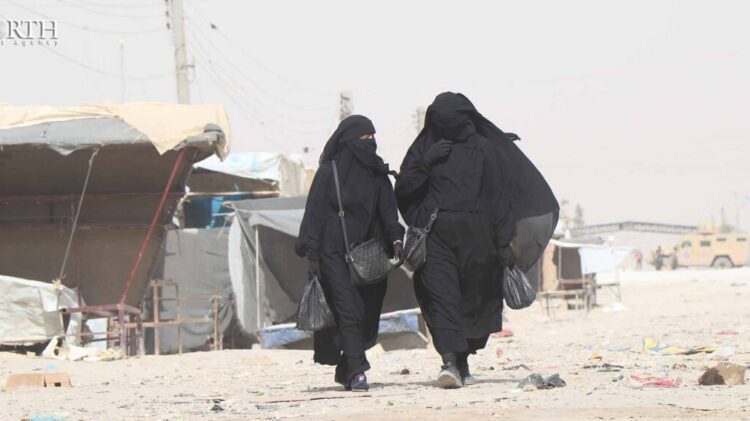A high-level UN delegation, accompanied by the Chief of Iraq’s National Security Service, made a trip to al-Hol Camp in Hassakeh Governorate, northeastern Syria on June 5th.
The delegation noticed closely the miserable life of those who live in the camp, stressing that they face great adversities on a daily basis “despite the best efforts of humanitarian actors,” the UN report of the visit, said.
They discussed the issue of repatriation and called all the countries to repatriate their nationals who reside in the camp, in order to eliminate the risks that could pose a big threat to the region and the world. They also called on these countries to follow in the footsteps of Iraq in this process.
Read Also: SOC Calls on UN to Reconsider Decision to Reduce Water Supplies to Rukban Refugee Camp
“Keeping people in restricted and poor conditions ultimately creates greater protection and security risks than taking them back in a controlled manner. Iraq is demonstrating that responsible repatriations are possible, by finding dignified solutions anchored in the principles of both accountability and reintegration,” said Jeanine Hennis-Plasschaert, the Special Representative of the United Nations Secretary-General for Iraq.
The UN Resident Coordinator and Humanitarian Coordinator for Syria, Imran Riza said that al-Hol Camp “is no place for children. The steps taken by the Government of Iraq are extremely important in the path to solutions. Action by the other Member States with citizens in the camp is urgently needed.”
According to the UN report, over 2.500 Iraqis have been repatriated, but there are still thousands of them left, as the al-Hol camp alone houses 28.000 of them. Those who are still in the camp are living in daily horror as they are repeatedly subjected to killings and kidnappings and keep calling for their government to take them back.
The UN, in its report, urged all the countries to take action in the repatriation process “with the appropriate measures of justice and accountability in line with international law, and community reintegration programs for those found innocent of any crime.”
This article was edited by The Syrian Observer. The Syrian Observer has not verified the content of this story. Responsibility for the information and views set out in this article lies entirely with the author.


